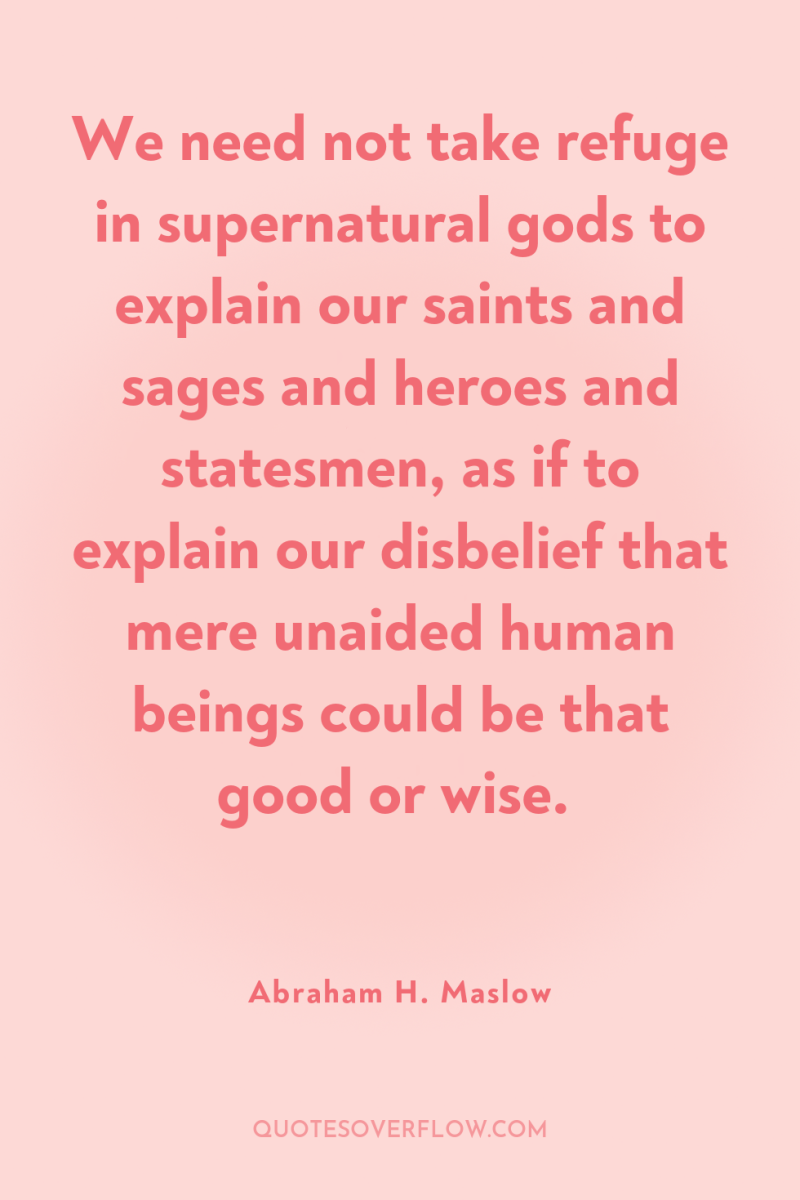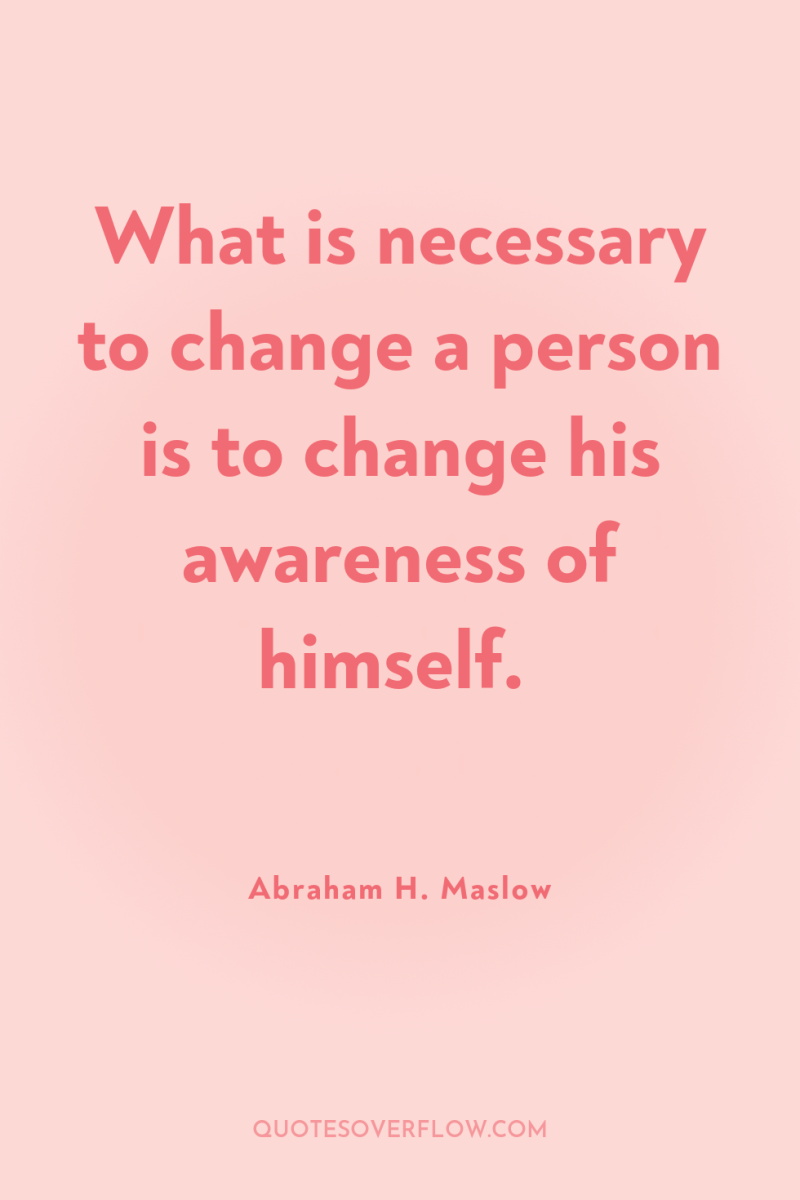
We need not take refuge in supernatural gods to explain our saints and sages and heroes and statesmen, as if to explain our disbelief that mere unaided human beings could be that good or wise.Abraham H. Maslow

I suppose it is tempting, if the only tool you have is a hammer, to treat everything as if it were a nail.Abraham H. Maslow

What is necessary to change a person is to change his awareness of himself.Abraham H. Maslow
The question of desirable grief and pain or the necessity for it must also be faced. [Are] growth and self-fulfillment possible at all without pain and grief and sorrow and turmoil? If grief and pain are sometimes necessary for growth of the person, then we must learn not to protect people from them automatically as if they were always bad. Not allowing people to go through their pain, and protecting them from it, may turn out to be a kind of overprotection, which in turn implies a certain lack of respect for the integrity and the intrinsic nature and the future development of the individual.Abraham H. Maslow
We fear our highest possibilities. We are generally afraid to become that which we can glimpse in our most perfect moments, under conditions of great courage. We enjoy and even thrill to godlike possibilities we see in ourselves in such peak moments. And yet we simultaneously shiver with weakness, awe, and fear before these very same possibilities.Abraham H. Maslow
Obviously the most beautiful fate, the most wonderful good fortune that can happen to any human being, is to be paid for doing that which he passionately loves to do.Abraham H. Maslow
It isn't normal to know what we want. It is a rare and difficult psychological achievement.Abraham H. Maslow
It seems that the necessary thing to do is not to fear mistakes, to plunge in, to do the best that one can, hoping to learn enough from blunders to correct them eventually.Abraham H. Maslow
If I were dropped out of a plane into the ocean and told the nearest land was a thousand miles away, I'd still swim. And I'd despise the one who gave up.Abraham H. Maslow
If your only tool is a hammer then every problem looks like a nail.Abraham H. Maslow
In a word, growth and improvement can come through pain and conflict.Abraham H. Maslow
The most stable, and therefore, the most healthy self-esteem is based on deserved respect from others rather than on external fame or celebrity and unwarranted adulation.Abraham H. Maslow
Perhaps adjustment and stabilization, while good because it cuts your pain, is also bad because development towards a higher ideal ceases?Abraham H. Maslow
The most fortunate are those who have a wonderful capacity to appreciate again and again, freshly and naively, the basic goods of life, with awe, pleasure, wonder and even ecstasy.Abraham H. Maslow
To be able to listen -- really, wholly passively, self-effacingly listen -- without presupposing, classifying, improving, controverting, evaluating, approving or disapproving, without dueling with what is being said, without rehearsing the rebuttal in advance, without free-associating to portions of what is being said so that succeeding portions are not heard at all -- such listening is rare.Abraham H. Maslow